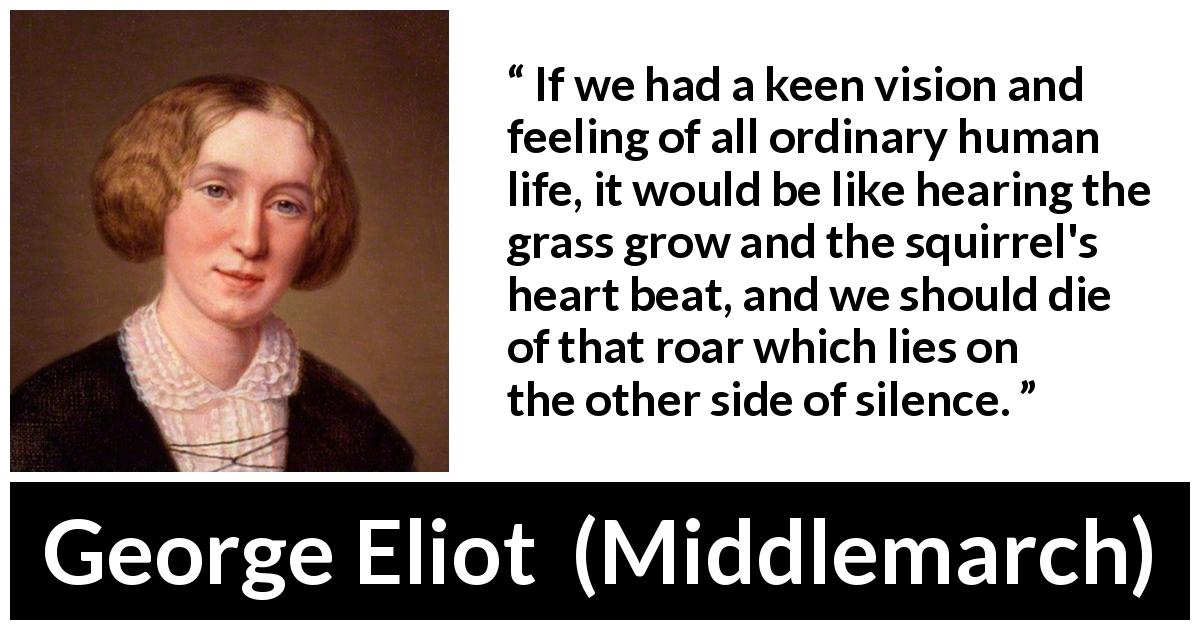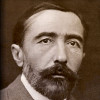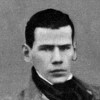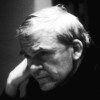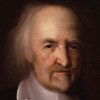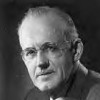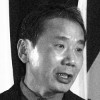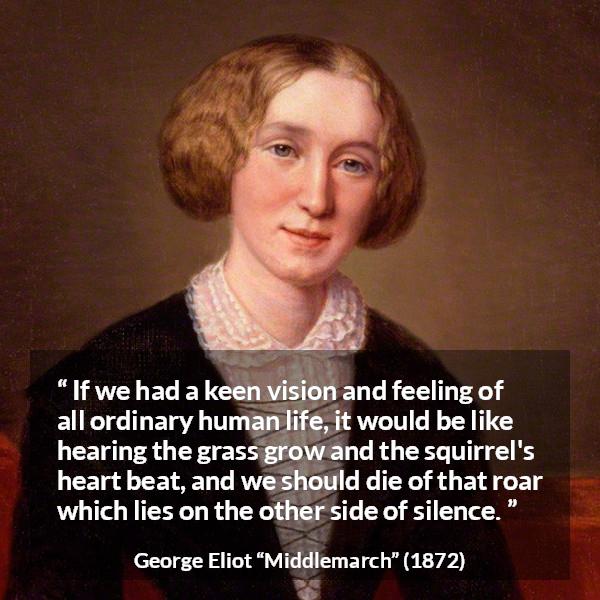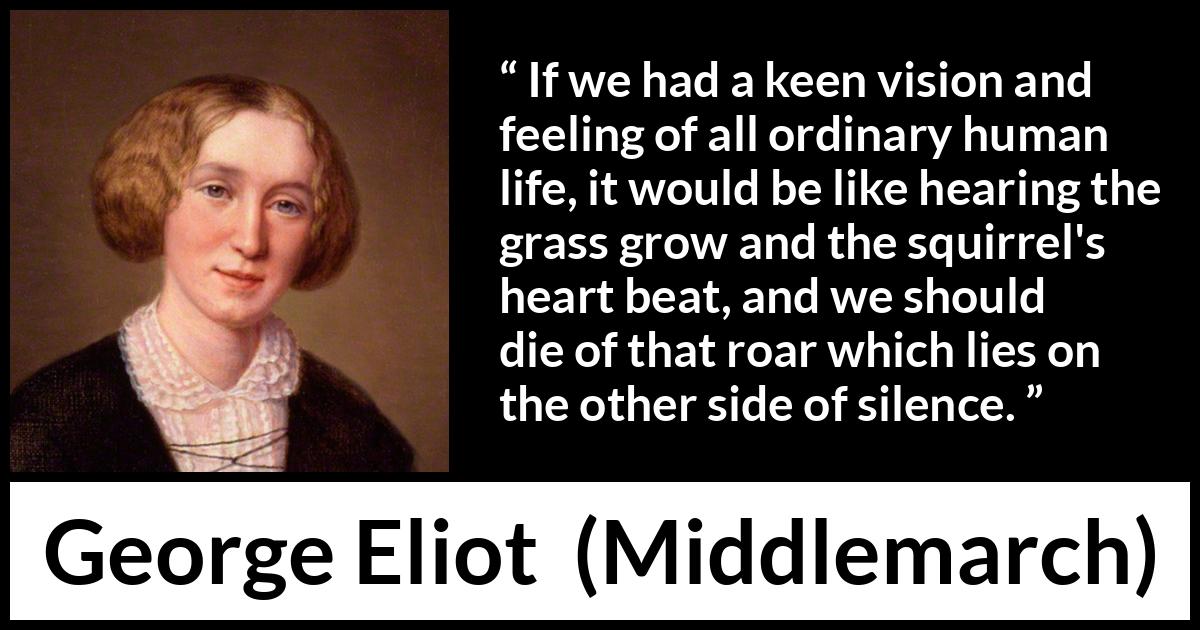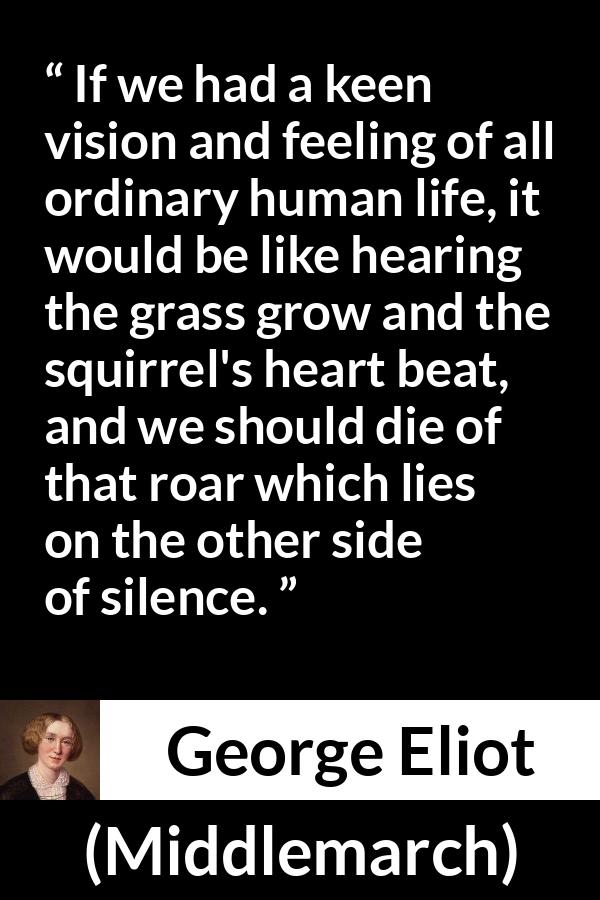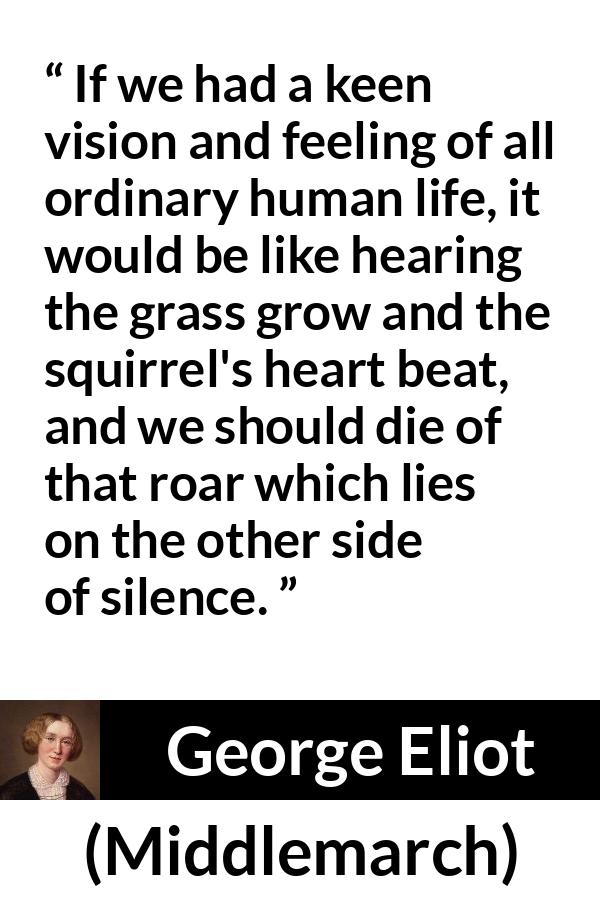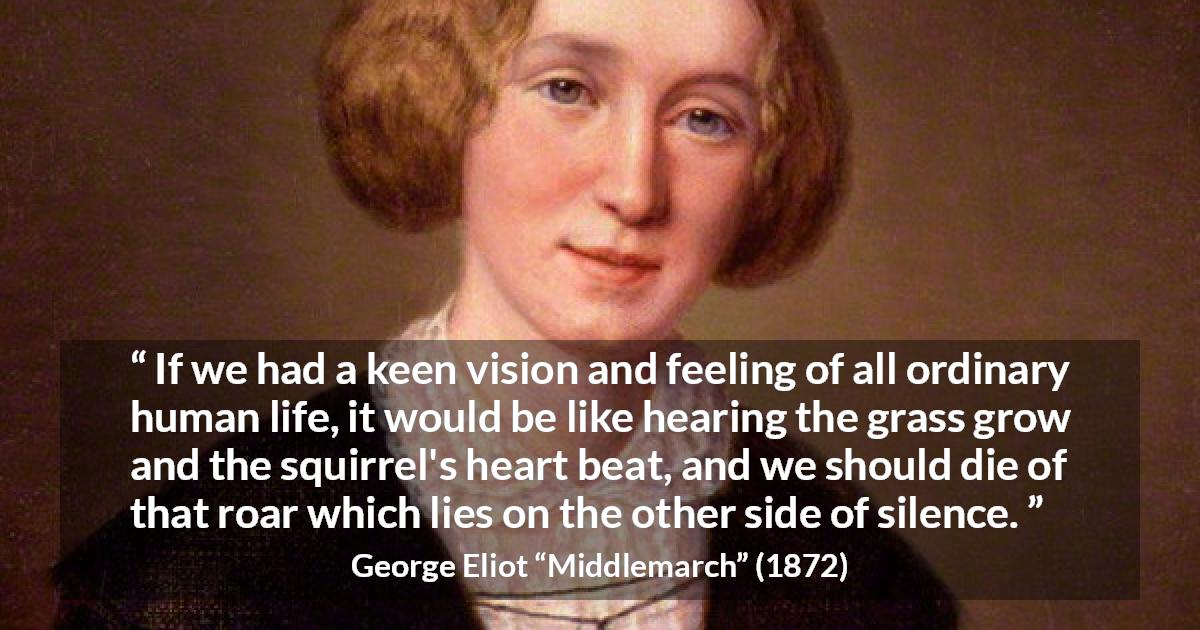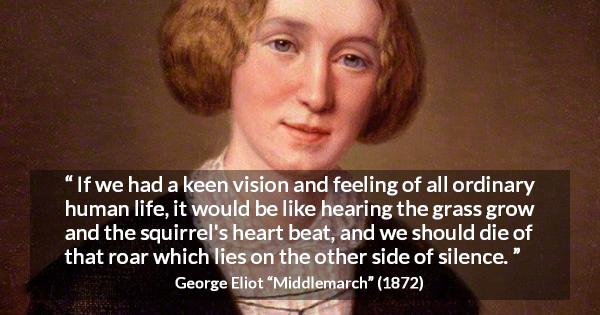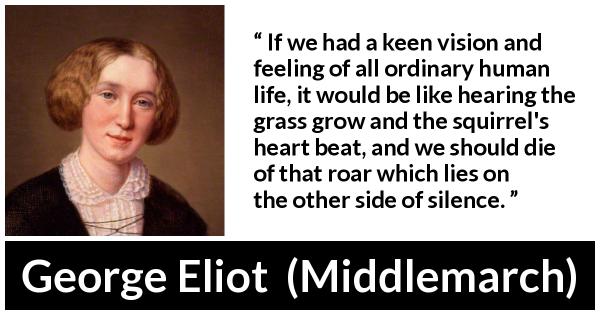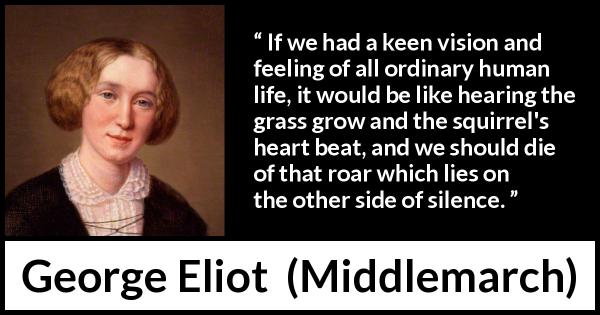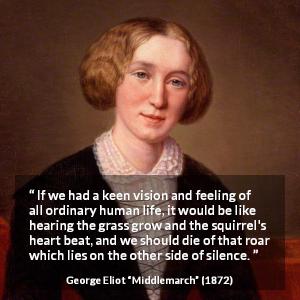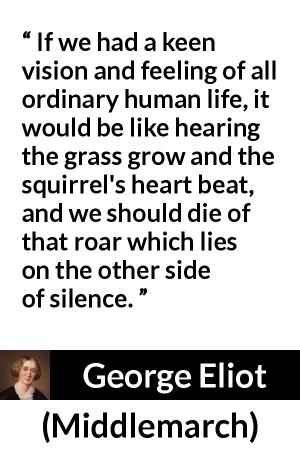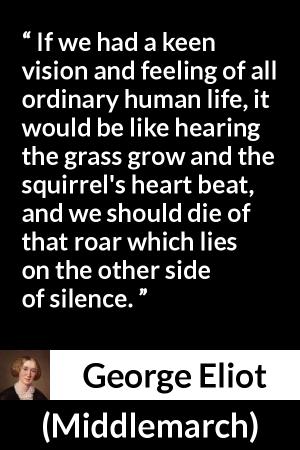“ If we had a keen vision and feeling of all ordinary human life, it would be like hearing the grass grow and the squirrel's heart beat, and we should die of that roar which lies on the other side of silence. ”
George Eliot, Middlemarch (1872). copy citation
| Author | George Eliot |
|---|---|
| Source | Middlemarch |
| Topic | life silence ordinary |
| Date | 1872 |
| Language | English |
| Reference | |
| Note | |
| Weblink | http://www.gutenberg.org/files/145/145-h/145-h.htm |
Context
“Some discouragement, some faintness of heart at the new real future which replaces the imaginary, is not unusual, and we do not expect people to be deeply moved by what is not unusual. That element of tragedy which lies in the very fact of frequency, has not yet wrought itself into the coarse emotion of mankind; and perhaps our frames could hardly bear much of it. If we had a keen vision and feeling of all ordinary human life, it would be like hearing the grass grow and the squirrel's heart beat, and we should die of that roar which lies on the other side of silence. As it is, the quickest of us walk about well wadded with stupidity.
However, Dorothea was crying, and if she had been required to state the cause, she could only have done so in some such general words as I have already used: to have been driven to be more particular would have been like trying to give a history of the lights and shadows, for that new real future which was replacing the imaginary drew its material from the endless minutiae by which her view of Mr. Casaubon and her wifely relation, now that she was married to him, was gradually changing with the secret motion of a watch-hand from what it had been in her maiden dream.” source
However, Dorothea was crying, and if she had been required to state the cause, she could only have done so in some such general words as I have already used: to have been driven to be more particular would have been like trying to give a history of the lights and shadows, for that new real future which was replacing the imaginary drew its material from the endless minutiae by which her view of Mr. Casaubon and her wifely relation, now that she was married to him, was gradually changing with the secret motion of a watch-hand from what it had been in her maiden dream.” source
